Life Sciences News
See our Latest Journal Publications
Matt Teft is part of winning team at Warwick Staff Awards
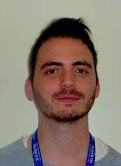 Matt Teft, a second year MIBTP (Midlands Integrative Biosciences Training Partnership) student, is part of a team that has won an award for Public Engagement at the University of Warwick Staff Awards.
Matt Teft, a second year MIBTP (Midlands Integrative Biosciences Training Partnership) student, is part of a team that has won an award for Public Engagement at the University of Warwick Staff Awards.
The MIBTP is a BBSRC funded Doctoral Training Partnership between the Universities of Warwick, Birmingham and Leicester. As part of their training, the BBSRC requires students to complete a Professional Internship for Phd Students (PIPS). Matt participated in the University's activities at the Cheltenham Science Festival in June 2015 as part of his PIPS and has written a blog of his experience: blogs.warwick.ac.uk/mibtp/entry/cheltenham_science_festival
Matt is a PhD student with Dr Miriam Gifford in the School of Life Sciences working on a project entitled 'Investigating conservation of function of SCARECROW-LIKE/GRAS transcription factors and their interactions in controlling root architecture responses'.
IFSTAL Away Day Success
On Saturday 5 March, Oxford University hosted the first IFSTAL (Innovative Food Systems Teaching and Learning) Away Day, where students from Warwick, Reading, Oxford, City and LCIRAH were able to meet and network with fellow students and food sector professionals, including Gavin Milligan – Group Sustainability Director at William Jackson Food and Angela Baker – Deputy Director, Health and Wellbeing, Public Health England. Two Masters students and two PhD students from the School of Life Sciences were involved in the day, presenting their own research and working with others to solve ‘real’ workplace scenarios in a relaxed and fun environment.
IFSTAL is an interactive training programme designed to improve postgraduate knowledge and understanding of the food system through numerous activities and events throughout the year, as well as an interactive Moodle site.
Want to get involved? To join you must be a postgraduate registered at Warwick University (or one of our partner institutes), although some events will be open to all.
Email Kelly Reed at IFSTAL-Warwick@Warwick.ac.uk to be put on the mailing list.
Alternatively find us on Facebook, Moodle and Twitter – simply search for IFSTAL.
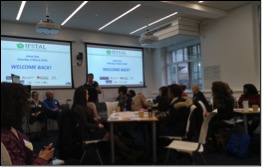 |
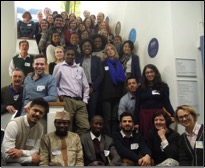 |
Summer research placements in Entomology and Pathology
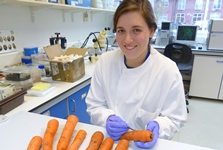 The School of Life Sciences has a number of summer research placements available in Entomology and Plant Pathology during the summer vacation of 2016. The placements are funded by the BBSRC through its Strategic Training Awards for Research Skills (STARS) scheme and provide training in strategically important and vunerable skills for bioscientists.
The School of Life Sciences has a number of summer research placements available in Entomology and Plant Pathology during the summer vacation of 2016. The placements are funded by the BBSRC through its Strategic Training Awards for Research Skills (STARS) scheme and provide training in strategically important and vunerable skills for bioscientists.
The 10-week placements are for second year undergraduate students enabling them to join a research group in Life Sciences and undertake a small research project related to the group's activities.
Each student will receive a bursary of £2000 (£200 per week).
For further details and how to apply see the Summer research placements flyer (pdf).
The closing date for applications is 18 April.
BBSRC Press Release 'First STARS awards target vunerable skills in the life sciences'
SLS authors publish new edition of 'Introduction to Modern Virology'
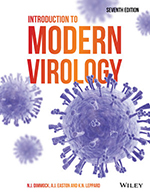 The new 7th edition of the popular textbook ‘Introduction to Modern Virology’ is published today.
The new 7th edition of the popular textbook ‘Introduction to Modern Virology’ is published today.
First published in 1974, this was one of the first textbooks in the field of virology. Authored by academics from the School of Life Sciences, the purpose of the book was and remains to provide a clear and comprehensive coverage of virology at a level accessible for undergraduates. It provides a broad introduction to virology, which includes the nature of viruses, the interaction of viruses with their hosts and the consequences of those interactions that lead to the diseases we see.
The latest edition, authored by Professor Nigel Dimmock, Professor Andrew Easton and Dr Keith Leppard, has been updated throughout to cover the ever growing subject area. The book includes new chapters focusing on the economic impact of virus infections and the impact that viruses have on the planet.
The text provides ideal reading for students in biology and medicine wishing to study virology.
Dr Leppard said, “the book underpins teaching of the subject to our undergraduates in Medical Microbiology and Virology, and Biomedical Science.”
Related links:
Introduction to Modern Virology, 7th Edition
BSc Biomedical Science
BSc Medical Microbiology and Virology
Professor Nicholas Dale receives MRC Discovery Award
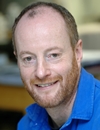 Innovative University of Warwick research will be accelerated thanks to funding from the Medical Research Council (MRC) to take ground-breaking ideas into industry and out to patients. A Discovery Award of £973k will support vivo microscopy researchers investigate the dynamic activity of individual neural cells during complex behaviours.
Innovative University of Warwick research will be accelerated thanks to funding from the Medical Research Council (MRC) to take ground-breaking ideas into industry and out to patients. A Discovery Award of £973k will support vivo microscopy researchers investigate the dynamic activity of individual neural cells during complex behaviours.
Led by Professor Nicholas Dale, researchers will investigate the activity of neural cells deep in the mammalian brain that help control complex behaviours such as feeding and breathing and the operation of the body’s circadian clock.
Dr Elizabeth Fullam wins Seed Grant Award to study Mycobacterium tuberculosis
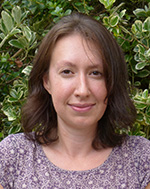 Dr Elizabeth Fullam has been awarded a seed grant of £25k from the Warwick Quantitative Biomedicine Programme (funded through the Wellcome Trust Institutional Strategic Support Fund). In a programme open to all Warwick researchers, seed grants are provided through an open, peer reviewed competition to explore quantitative biology in all areas of modern biology. Dr Fullam's project aims to quantify nutrient uptake and metabolism in Mycobacterium tuberculosis and will fund a postdoctoral researcher for 6 months.
Dr Elizabeth Fullam has been awarded a seed grant of £25k from the Warwick Quantitative Biomedicine Programme (funded through the Wellcome Trust Institutional Strategic Support Fund). In a programme open to all Warwick researchers, seed grants are provided through an open, peer reviewed competition to explore quantitative biology in all areas of modern biology. Dr Fullam's project aims to quantify nutrient uptake and metabolism in Mycobacterium tuberculosis and will fund a postdoctoral researcher for 6 months.
Tuberculosis (TB) caused by Mycobacterium tuberculosis (Mtb) is a major global health problem, with the World Health Organisation reporting 9 million new cases of TB and 1.5 million deaths from TB in 2014 alone. It is estimated that one-third of the world’s population is latently infected with Mtb and Mtb is unique in its ability to be able to survive within the human host for decades.
Currently there is a lack in our understanding of the nutrients that Mtb is able to utilise to survive intracellularly. The aim of this Quantitative Biomedical Seed Grant is to utilise advanced imaging techniques to enable us to understand and quantify these essential nutrient uptake and metabolism processes in this pathogenic organism.
Research Fellow vacancy - apply by 16 February 2016
SBRI funding received to develop diagnostic biosensors for strokes
Sarissa Biomedical, a spin-out company established by Professor Nick Dale, Ted Pridgeon Professor of Neuroscience in the School of Life Sciences, has been awarded £150,000 from Innovate UK’s Small Business Research Initiative (SBRI). Sarissa Biomedical has pioneered highly sensitive analytical devices known as microelectrode biosensors, which can be used to monitor in real-time the levels of purines - neurochemicals that influence the function of the nervous system. These biosensors have been used to demonstrate that purines are elevated in the blood of stroke patients compared to healthy controls.
Stroke is one of the leading causes of death and disability in the UK – in 2010 there were an estimated 150,000 strokes and 50,000 deaths attributable to stroke. Stroke currently costs the UK economy approximately £9billion per year in health and social care costs. Rapid treatment of ischaemic strokes to remove the blockage of cerebral circulation can allow perfect recovery and avoid lasting disability. On average for every 15 minutes saved in the period from stroke onset to the provision of treatment, one extra month of disability-free life is achieved. Point-of-care tests that can detect stroke from its earliest moments would help to shorten treatment delays and ensure that as many patients as possible receive treatment.
The SBRI funding will enable the project team to develop the biosensor technology into a prototype diagnostic device for strokes that can be used by paramedics. It will also support the analysis of the stroke clinical pathway to determine how the device can be used most effectively, and it will allow the design of a large-scale clinical trial involving paramedics and ambulance staff across the UK. Deployment of this test with paramedics will allow speedier identification of stoke victims at the point of injury, and facilitate rapid coordination of the clinical treatment pathway to maximise the chances of the best possible patient outcomes.
Plants use a molecular clock to predict when they’ll be infected
 Dr Katherine Denby and colleagues discovered that a plant's molecular clock is connected to their immune system to increase levels of resistance to infection at dawn – the time at which fungal infections appear most likely to occur, with plants unable to maintain the highest level of resistance at all times of day.
Dr Katherine Denby and colleagues discovered that a plant's molecular clock is connected to their immune system to increase levels of resistance to infection at dawn – the time at which fungal infections appear most likely to occur, with plants unable to maintain the highest level of resistance at all times of day.
The researchers identified a single protein, JAZ6, in the plant cell which drives this time-of-day difference in the effectiveness of the immune response, with it connecting the plant clock to the immune system.
Professor Liz Wellington receives BBSRC award to investigate bovine tuberculosis control strategies
 Professor Liz Wellington, Professor of Environmental Microbiology in the School of Life Sciences, has been awarded £1,172,973 from BBSRC for her project on ‘The farm environment: an overlooked reservoir of Mycobacterium bovis?’.
Professor Liz Wellington, Professor of Environmental Microbiology in the School of Life Sciences, has been awarded £1,172,973 from BBSRC for her project on ‘The farm environment: an overlooked reservoir of Mycobacterium bovis?’.
M. bovis is the causative agent of bovine tuberculosis (bTB), a disease that affects cattle health and welfare and has serious impacts on the agriculture industry. Uncertainty around the transmission of bTB has impeded the development of effective control measures, but recent research has suggested that indirect transmission through M. bovis in the environment may play an important role in the spread of bTB between cattle and wildlife. This project brings together interdisciplinary expertise in epidemiology, microbiology, genomics and ecology, to investigate the distribution and survival of M. bovis in the farm environment and to determine how biosecurity measures may be adjusted to limit the transmission of this harmful bacterium. The research will be carried out in collaboration with Professor Mark Pallen from Warwick Medical School, Professor Rosie Woodroffe from the ZSL Institute of Zoology, and Professor Christl Donnelly from Imperial College London.
The project was funded by BBSRC’s Eradication of bovine tuberculosis through basic research and discovery (ERADbTB) scheme, which is also supported by DEFRA and is part of the wider Research Councils UK programme in Global Food Security.
Professor John McCarthy receives MRC award to identify novel drug therapies
 Professor John McCarthy, Professor of Molecular Systems Biology at the University of Warwick School of Life Sciences, and Director of the Warwick Integrative Synthetic Biology Centre (WISB), has received funding from the MRC to pursue research on ’Protein synthesis in trypanosomatids as a target for novel drug therapies’. The FEC award of £360k will be complemented by a simultaneous award from Fundação Araucária in the State of Paraná (Brazil) to collaborators in the Carlos Chagas Institute in Curitiba. Colleagues at the University of Leeds will also be involved in the project.
Professor John McCarthy, Professor of Molecular Systems Biology at the University of Warwick School of Life Sciences, and Director of the Warwick Integrative Synthetic Biology Centre (WISB), has received funding from the MRC to pursue research on ’Protein synthesis in trypanosomatids as a target for novel drug therapies’. The FEC award of £360k will be complemented by a simultaneous award from Fundação Araucária in the State of Paraná (Brazil) to collaborators in the Carlos Chagas Institute in Curitiba. Colleagues at the University of Leeds will also be involved in the project.
Trypanosomatids are parasites that migrate between insect vectors and mammalian hosts. They cause a number of highly debilitating and potentially fatal diseases with major impacts on human health and wellbeing on a global scale. Trypanosoma cruzi, which causes Chagas disease, is believed to affect at least 11 million people in Mexico, Central America and South America. Leishmania is now endemic in South America, the Middle East, Asia, Africa and more than 20 countries in Europe.
Given that the current anti-parasitic treatments are unpleasant, not fully effective, and encountering resistance, there is an urgent need for a new strategy to identify safe, efficacious drugs. This collaborative project will explore whether drugs can be developed based on selective targeting of protein-protein interactions in the trypanosomatid protein synthesis machinery.
The project was funded through MRC’s UK-Brazil Neglected Infectious Diseases Partnership scheme.
BBSRC Future Leader Fellowship awarded for phage therapy project
 Antonia Sagona has been awarded a prestigious BBSRC Future Leader Fellowship for her project on ‘Engineering synthetic phages against pathogenic E. coli as an innovative tool for phage therapy’.
Antonia Sagona has been awarded a prestigious BBSRC Future Leader Fellowship for her project on ‘Engineering synthetic phages against pathogenic E. coli as an innovative tool for phage therapy’.
Antimicrobial resistance is an increasing problem. Antimicrobial-resistant infections currently claim at least 50,000 lives each year across Europe and the US alone, with many hundreds of thousands more dying in other areas of the world. Phage therapy offers an alternative to conventional antibiotics as bacteriophages are naturally occurring viruses that infect and kill bacteria; they have high specificity for their bacterial targets and the side effects are minimal.
Antonia’s project will use state-of-the-art microscopy to understand the mechanisms by which phages infect and kill their bacterial targets. She will also engineer synthetic phages to target a strain of E. coli that is responsible for several serious medical conditions, including neonatal meningitis, sepsis, acute cystitis, and secondary infections in burn patients.
Antonia currently works as a Postdoctoral Research Fellow with Alfonso Jaramillo, and the Fellowship will support her transition towards becoming a fully independent research leader. Further information on the scheme is available at BBSRC Future Leader Fellowship.
What new diagnostics are required to assist in eliminating visceral leishmaniasis in the Indian sub-continent?
Authors of a new supplement in journal Nature argue that investment in simple diagnostic tools for the developing world could have a dramatic impact on health, saving lives and ending disease epidemics. The supplement includes a paper by Dr Deirdre Hollingsworth and colleagues on 'Health-seeking behaviour, diagnostics and transmission dynamics in the control of visceral leishmaniasis in the Indian subcontinent'.
Visceral leishmaniasis is an infectious disease which causes significant numbers of deaths in the Indian sub-continent every year. Kala azar, or “black fever”, as it is known, is characterized by fever followed by potentially severe symptoms such as a swollen spleen. Untreated it is believed to almost uniformly fatal. Currently there is a large international effort to eliminate kala azar, but there is a need to consider strategies which will prevent a resurgence of infection when these controls are lifted.
Results published in Nature today suggest that reductions in time from when fever develops to diagnosis and effective treatment could be enough to reduce onward transmission and reduce the number of cases. Currently in Bihar state in northern India, it can take 90 days to be diagnosed, where as diagnosis times are shorter in Bangladesh and Nepal, where incidence is also lower.
The research, which was a collaboration across four institutions, used mathematical models to investigate the dynamics of infection in areas with different diagnosis times and suggested that reduced time to diagnosis by weeks or months may be an effective control strategy. By using simple models, informed by the limited data available on this neglected tropical disease, we can get an understanding of the dynamics of transmission.
The analysis also highlighted the potential use of a new diagnostic that would identify infections early in their development, before serious symptoms. Even at a moderately low probability of detecting a case, this had the potential to identify enough cases early enough to reduce transmission. However, the researchers also highlighted that such a diagnostic would have to be very specific to visceral leishmaniasis, otherwise there would be many false positives, particularly as cases of visceral leishmaniasis become rarer.
Read the supplement: 'Infectious disease control and elimination - Modelling the impact of improved diagnostics'
The research was coordinated by The Diagnostics Modelling Consortium
BBSRC award to run plant science data workshop
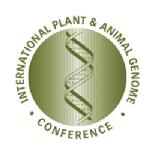 Dr Katherine Denby has been awarded £7,750 from the BBSRC International Scientific Interchange Scheme to run a “Data standards for the Plant Sciences” workshop at the Plant and Animal Genome Conference (PAG 2016) in San Diego in January.
Dr Katherine Denby has been awarded £7,750 from the BBSRC International Scientific Interchange Scheme to run a “Data standards for the Plant Sciences” workshop at the Plant and Animal Genome Conference (PAG 2016) in San Diego in January.
The workshop will bring together leading experts from across the world working in the areas of data and experimental description; data identification and discovery/re-use; data integration and data citation.
The first day of the workshop will showcase a number of key activities and projects currently being undertaken globally and provide a public forum for discussion and raising awareness of issues associated with sharing data within the plant science community.
The second day will consist of a closed forum to map out current activities and assess their contributions to a systematic approach to data management and standards in plant sciences.
The workshop will generate a report describing current pools of expertise, identifying gaps and community needs and outlining mechanisms to meet these needs.
Further details of workshop (information will be updated as speakers confirm)
Bacteria cells group together in communities and use electrical signalling to survive
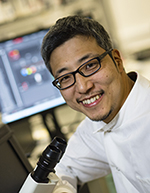 Research by Dr Munehiro Asally and colleagues shows cells group together to electronically communicate and ensure nutrients reach where they are needed.
Research by Dr Munehiro Asally and colleagues shows cells group together to electronically communicate and ensure nutrients reach where they are needed.
“By oscillating, nutrients are able to reach the cells that form the inner region of the biofilm. If the biofilm was not to do so then those inner cells would die and the biofilm would fail to function”
Read the Press Release
Leprosy and Elephantiasis: new cases could be prevented in ten years
The life chances of over one billion people could be improved through examining the transmission of nine neglected tropical diseases (NTDs) says Dr Deirdre Hollingsworth, principal investigator of an international consortium of researchers.
Read the Press Release
Warwick-Monash Alliance funds workshop on Autophagy research
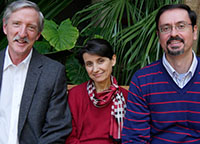 On September 24-25, a Warwick-Monash Alliance funded workshop on Autophagy research was held at Monash University. The workshop was organised by Professor Rodney Devenish (Department of Biochemistry & Molecular Biology, Monash University) and Associate Professor Dr Ioannis P. Nezis (School of Life Sciences, University of Warwick). The workshop included formal presentations, an idea-sharing forum, small group interactions and a public lecture with keynote speaker Professor Ana Maria Cuervo, a world-leader in autophagy research field, from Institute for Aging Research, Albert Einstein College of Medicine in New York. The main focus of the workshop was to bring Warwick and Monash researchers together to collaborate and to develop ideas and concepts for future joint funding.
On September 24-25, a Warwick-Monash Alliance funded workshop on Autophagy research was held at Monash University. The workshop was organised by Professor Rodney Devenish (Department of Biochemistry & Molecular Biology, Monash University) and Associate Professor Dr Ioannis P. Nezis (School of Life Sciences, University of Warwick). The workshop included formal presentations, an idea-sharing forum, small group interactions and a public lecture with keynote speaker Professor Ana Maria Cuervo, a world-leader in autophagy research field, from Institute for Aging Research, Albert Einstein College of Medicine in New York. The main focus of the workshop was to bring Warwick and Monash researchers together to collaborate and to develop ideas and concepts for future joint funding.
Formed in early 2012, the Monash Warwick Alliance represents an innovation in higher education and research and aims to accelerate the exchange of people, ideas and information between Monash University and the University of Warwick.
(Image: Prof Devenish, Prof Cuervo and Prof Nezis)
Dr David Roper receives BBSRC grant to explore next generation antibiotics
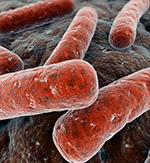 Dr David Roper
Dr David Roper has been awarded £1.1M from BBSRC-LINK grant for his project on ‘Tools and Reagents for Next Generation Inhibitor Discovery in Peptidoglycan biosynthesis’.
has been awarded £1.1M from BBSRC-LINK grant for his project on ‘Tools and Reagents for Next Generation Inhibitor Discovery in Peptidoglycan biosynthesis’.
The two-year project will be carried out in collaboration with industrial partner Merck Pharmaceuticals and includes Prof Chris Dowson and Dr Adrian Lloyd
and Dr Adrian Lloyd from the School of Life Sciences as co-investigators. Antimicrobial resistance to existing antibiotics threatens future healthcare at multiple levels and has been acknowledged as a worldwide issue with an impact as important as climate change. However, a number of factors has led to a steady decline in the discovery and development of antimicrobials in the pharmaceutical industry despite the clear clinical need. This study will investigate the enzymes involved in an early stage of bacterial cell wall synthesis as a target for new antimicrobial drugs. The project seeks to gain the essential knowledge required to explore these enzymes for next generation antibiotics. The team will generate a series of specialist chemical probes to interrogate the mechanism by which these enzymes work, determine the structures of these probes bound to the enzymes, and generate new assays that will allow the discovery of future antibiotics.
from the School of Life Sciences as co-investigators. Antimicrobial resistance to existing antibiotics threatens future healthcare at multiple levels and has been acknowledged as a worldwide issue with an impact as important as climate change. However, a number of factors has led to a steady decline in the discovery and development of antimicrobials in the pharmaceutical industry despite the clear clinical need. This study will investigate the enzymes involved in an early stage of bacterial cell wall synthesis as a target for new antimicrobial drugs. The project seeks to gain the essential knowledge required to explore these enzymes for next generation antibiotics. The team will generate a series of specialist chemical probes to interrogate the mechanism by which these enzymes work, determine the structures of these probes bound to the enzymes, and generate new assays that will allow the discovery of future antibiotics.
Marine conservation research in top 20 global impact case studies
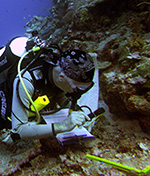 The UK Collaborative on Development Sciences (UKCDS) has listed the School of Life Sciences marine conservation case study as one of its top 20 favourite impact stories showing how research is improving lives of people around the world. The study led by Prof Charles Sheppard was selected from 6,975 impact case studies submitted to the Research Excellence Framework (REF) which is a system used to assess research quality in UK universities.
The UK Collaborative on Development Sciences (UKCDS) has listed the School of Life Sciences marine conservation case study as one of its top 20 favourite impact stories showing how research is improving lives of people around the world. The study led by Prof Charles Sheppard was selected from 6,975 impact case studies submitted to the Research Excellence Framework (REF) which is a system used to assess research quality in UK universities.
The case study shows how Prof Charles Sheppard and colleagues have been co-ordinating new approaches to coral reef conservation, restoration and management, using the coral reefs and islands in the Chagos Archipelago as a reference site. Underpinned by UK research, this British Indian Ocean Territory has now been declared a Marine Protected Area, supporting ecosystem conservation to benefit tropical habitats and help preserve livelihoods in some of the poorest countries in that region.
For full details visit UKCDS Conserving marine environments
(Image courtesy of Anne Sheppard)
Best student poster awards for PhD student Kathryn Hales
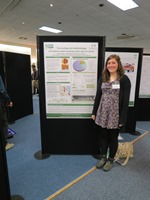 School of Life Sciences PhD student Kathryn Hales, won both the John Colhoun Prize awarded for best student poster at the British Society for Plant Pathology Presidential Meeting 2015, and the best student poster award at the recent AHDB Studentship Conference.
School of Life Sciences PhD student Kathryn Hales, won both the John Colhoun Prize awarded for best student poster at the British Society for Plant Pathology Presidential Meeting 2015, and the best student poster award at the recent AHDB Studentship Conference.
Her poster was entitled 'Understanding the ecology and epidemiology of Pythium violae to enable disease management in carrot crops'.
Inaugural SLS Undergraduate Project Impact Prize awarded
 The outstanding research of two undergraduate students in SLS has been recognised by them becoming joint recipients of the School’s Undergraduate Project Impact Prize.
The outstanding research of two undergraduate students in SLS has been recognised by them becoming joint recipients of the School’s Undergraduate Project Impact Prize.
Final-year students Archna Shah (pictured) and Sarah Brocklesby performed their research projects in the laboratory of Dr David Roper, and made significant contributions to his programme of research on antimicrobial resistance.
The rapid rise of multi-drug-resistant bacteria is a global healthcare crisis, and new antibiotics are urgently required. Research at Warwick seeks to identify particular structural information on this essential class of enzymes that may lead to a new antibiotic discovery strategy. Archna and Sarah worked in parallel on cloning, expression, purification and crystallisation of tRNA synthetases from the bacteria S. aureus and E. coli respectively. These proteins were required as part of an MRC-funded research grant entitled Multi-Targeting of tRNA synthetases: A paradigm shift in combating Antimicrobial resistance (AMR). The clones that the students produced have now been provided to MRC-funded postdoctoral researcher, Dr Dominico Bellini working at the Diamond Light Source synchrotron facility in Oxfordshire, who has used them to produce protein crystals that enabled totally new X-ray crystal structures of the corresponding tRNA synthetase enzymes to be produced. The first of these structures was determined at a near-atomic resolution of 1.3Å, the day before Archna and Sarah graduated in July 2015 and is the highest resolution structure of this class so far discovered!
Archna and Sarah’s clones have made a pivotal contribution to this project at its very earliest stage and we expect that the project will lead to significant advances in antibiotic drug discovery in the future.
Both students have shown great promise and they have already made the next step towards advancing their research careers: Sarah now works for the biotechnology company ProImmune, based in Oxford, and Archna recently started an MBio industrial placement with Micropathology Ltd at the University of Warwick Science Park.
